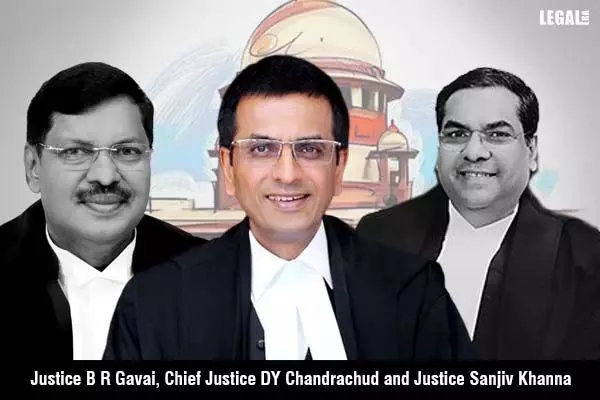- Home
- News
- Articles+
- Aerospace
- AI
- Agriculture
- Alternate Dispute Resolution
- Arbitration & Mediation
- Banking and Finance
- Bankruptcy
- Book Review
- Bribery & Corruption
- Commercial Litigation
- Competition Law
- Conference Reports
- Consumer Products
- Contract
- Corporate Governance
- Corporate Law
- Covid-19
- Cryptocurrency
- Cybersecurity
- Data Protection
- Defence
- Digital Economy
- E-commerce
- Employment Law
- Energy and Natural Resources
- Entertainment and Sports Law
- Environmental Law
- ESG
- FDI
- Food and Beverage
- Gaming
- Health Care
- IBC Diaries
- In Focus
- Inclusion & Diversity
- Insurance Law
- Intellectual Property
- International Law
- IP & Tech Era
- Know the Law
- Labour Laws
- Law & Policy and Regulation
- Litigation
- Litigation Funding
- Manufacturing
- Mergers & Acquisitions
- NFTs
- Privacy
- Private Equity
- Project Finance
- Real Estate
- Risk and Compliance
- Student Corner
- Take On Board
- Tax
- Technology Media and Telecom
- Tributes
- Viewpoint
- Zoom In
- Law Firms
- In-House
- Rankings
- E-Magazine
- Legal Era TV
- Events
- News
- Articles
- Aerospace
- AI
- Agriculture
- Alternate Dispute Resolution
- Arbitration & Mediation
- Banking and Finance
- Bankruptcy
- Book Review
- Bribery & Corruption
- Commercial Litigation
- Competition Law
- Conference Reports
- Consumer Products
- Contract
- Corporate Governance
- Corporate Law
- Covid-19
- Cryptocurrency
- Cybersecurity
- Data Protection
- Defence
- Digital Economy
- E-commerce
- Employment Law
- Energy and Natural Resources
- Entertainment and Sports Law
- Environmental Law
- ESG
- FDI
- Food and Beverage
- Gaming
- Health Care
- IBC Diaries
- In Focus
- Inclusion & Diversity
- Insurance Law
- Intellectual Property
- International Law
- IP & Tech Era
- Know the Law
- Labour Laws
- Law & Policy and Regulation
- Litigation
- Litigation Funding
- Manufacturing
- Mergers & Acquisitions
- NFTs
- Privacy
- Private Equity
- Project Finance
- Real Estate
- Risk and Compliance
- Student Corner
- Take On Board
- Tax
- Technology Media and Telecom
- Tributes
- Viewpoint
- Zoom In
- Law Firms
- In-House
- Rankings
- E-Magazine
- Legal Era TV
- Events
Supreme Court Dismisses Curative Pleas By Vodafone & Airtel On AGR Calculation

Supreme Court Dismisses Curative Pleas By Vodafone & Airtel On AGR Calculation
The telcos approached the court claiming errors of over Rs.1 lakh crore
The Supreme Court has jolted the telecom firms by dismissing a batch of pleas filed by companies, including Vodafone Idea and Bharti Airtel, seeking correction of alleged errors in the Adjusted Gross Revenue (AGR).
A bench comprising Chief Justice DY Chandrachud, Justice Sanjiv Khanna and Justice B R Gavai also rejected the request of telcos seeking to list the curative petitions for open court hearing.
(A curative petition is the last legal recourse in the apex court, generally considered in-chamber unless a prima facie case is made for reconsidering the verdict).
The bench stated, "The application for listing the curative petitions in open court is rejected. We have gone through the petitions and the connected documents. No case is made within the parameters indicated in the decision of this court in the Rupa Ashok Hurra v Ashok Hurra. The curative petitions are dismissed.”
On 09 October 2023, the top court noted submissions of telecommunication companies to list their pleas on AGR due issue. They referred to the alleged errors in the calculation by the Department of Telecommunications (DoT).
In July 2021, the Supreme Court dismissed a plea seeking the correction in errors of AGR dues.
The telcos had approached the court claiming errors of over Rs.1 lakh crore. Vodafone's liability was Rs.58,254 crore and Airtel's Rs.43,980 crore.
Earlier, the court gave them 10 years to clear the outstanding dues to the government. It stated that the demand raised by the DoT was final and advised the companies not to raise any further dispute, as there was no scope for re-assessment.
It directed the telecom operators to pay 10 percent of the total dues as demanded by DoT by 31 March 2021, and the rest in yearly instalments commencing from 01 April 2021 to 31 March 2031.



